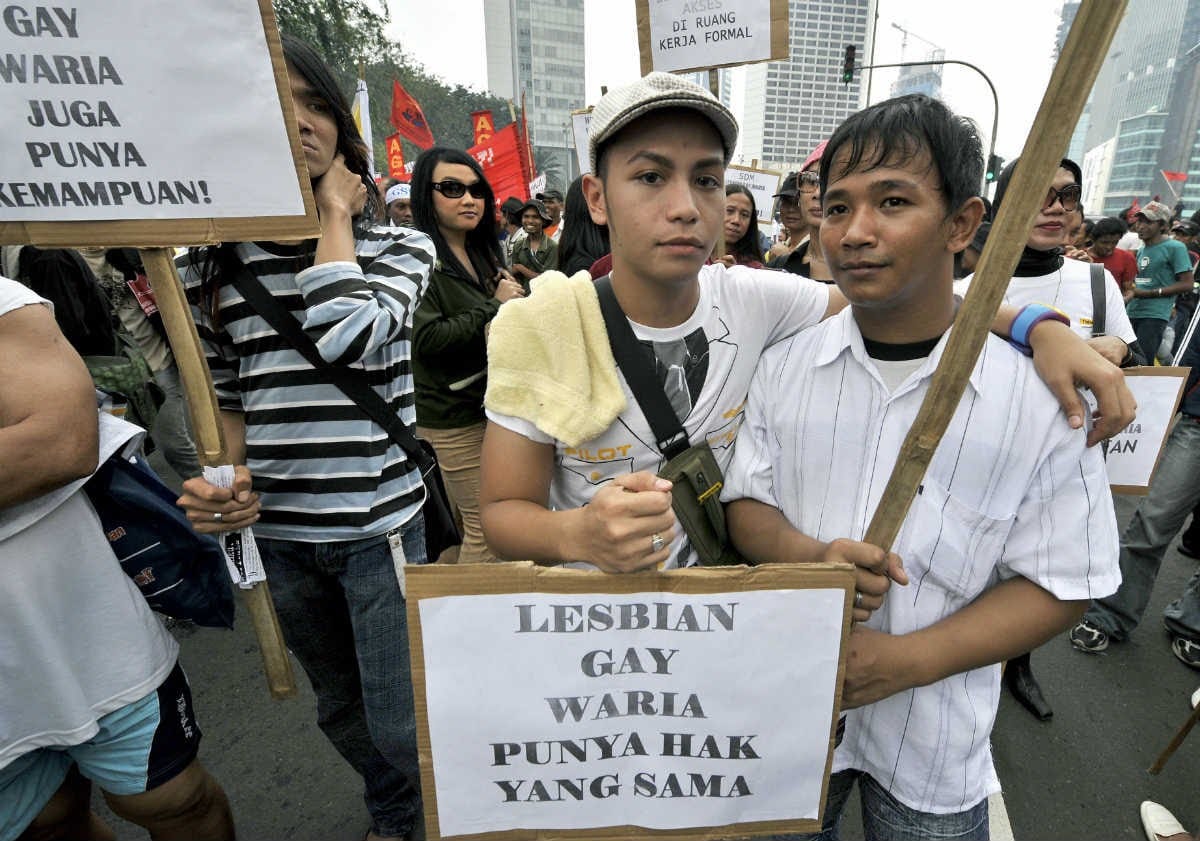Homosexuality defined as sexually deviant in new Indonesian draft bill

By Frances Howe, LLB
A draft of the proposed Indonesian Bill known as the ‘RUU Ketahanan Keluarga’ or ‘Family Resilience Bill’ has been obtained by the Jakarta Post and released online. The Bill aims to promote the Indonesian family unit, ‘the main pillar in realising national resilience,’ by protecting it from the increasing threat of globalisation. Article 85 of the bill identifies the crisis of ‘sexual deviance’ and entails a list of threats to the religious values and morals of the family. The list of sexual deviances includes: sadism, masochism, homosexuality and incest. The Article specifies that sexual intercourse between members of the same gender are a threat to family life, as well as the ‘social identity where someone loves or likes the same sex.’ Those found in violation of sexual deviances will be referred to social, psychological, and medical rehabilitation and spiritual guidance practices.
‘The list of sexual deviances includes sadism, masochism, homosexuality and incest.’
Homosexuality is not a criminal offence in Indonesia, excluding the province of Aceh. Many local regulations around the country feature practices that detain those suspected of being gay or trans and refer them to ‘rehabilitation services’ involving ‘ruqyah’ in an attempt to cure them of what is thought to be an illness. The Bill is backed by four major parties and is on the People’s Representative Council of Indonesia’s priority list for the 2020-2024 legislation program. Sodik Mujahi of the Gerindra Party, who are in support of the Bill, describes homosexuality as a disruption to ‘the future of mankind on a family basis.’
The draft also aims to legally define the roles of husband and wife. According to Article 25, the husband is the ‘head of the family’ and is responsible for protecting the family from gambling, pornography, promiscuity, alcohol, and drugs. The husband is also required to provide the ‘necessities of life in the household.’ The obligations of the wife include maintaining the integrity of the family by treating the ‘husband and children properly.’ This too has sparked controversy by upholding and legitimizing patriarchal structures. Tsamara Amany of the Indonesia Solidarity Party (PSI) took to her personal twitter to respond: ‘There is no definite responsibility of a husband or wife. Both obligations depend on their own agreement – not the state’s regulation’ (Translated from the original version to English). Meanwhile, the Sexual Violence Bill, a separate bill which would ensure greater protection for all victims of sexual violence, has not continued to progress through Parliament. The current draft does not recognise domestic violence as a threat to family life.
The Bill comes just a few weeks after President Joko Wikodo addressed a joint sitting of the Australian Parliament, speaking on the need to ‘continue to advocate the values of democracy, human rights, stop intolerance, stop xenophobia, stop radicalism and stop terrorism.’



